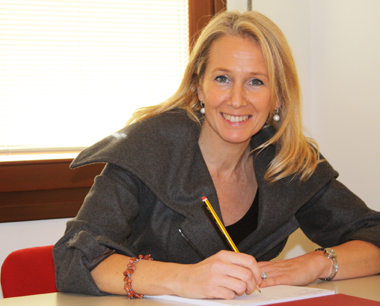DISACCORDO DEI GENITORI SUL VACCINO ANTI COVID-19
30 LUGLIO 2021 | Vaccinazione anti Covid-19 | genitori in disaccordo
In caso di vaccinazione di soggetti minorenni, i Centri vaccinali chiedono il consenso alla vaccinazione firmato da entrambi i genitori.
Ma che succede se i genitori del minore non sono d’accordo sulla vaccinazione anticovid-19?
Con un’interessante pronuncia, il Tribunale di Monza (Trib. Monza, sez. IV Civile, decr., 22 luglio 2021) si è pronunciato sul punto.
Nella vicenda in esame, il padre di un minore di 15 anni negava il proprio consenso per la somministrazione del vaccino anti COVID-19 al figlio, senza tenere conto della volontà espressa da quest’ultimo.
Con ricorso ex art. 709-ter c.p.c. la madre chiedeva di poter sottoscrivere il consenso informato richiesto per la somministrazione del vaccino anche senza l’autorizzazione dell’ex coniuge.
Il Tribunale di Monza ha accolto il ricorso in quanto, secondo l’orientamento sviluppatosi nella giurisprudenza di merito in tema di vaccinazioni (obbligatorie e non), laddove vi sia un concreto pericolo per la salute del minore, in relazione alla gravità e diffusione del virus e vi siano dati scientifici univoci che quel trattamento sanitario risulta efficace, il giudice può “sospendere” momentaneamente la capacità del genitore contrario al vaccino: il giudice, pertanto, nel valutare le opzioni sostenute rispettivamente dalla madre e dal padre, dovrà tenere conto dell’esistenza di un grave pregiudizio per la salute e della diffusione della malattia sul territorio nazionale.
Tale orientamento, inoltre, è concorde nel ritenere che i vaccini approvati dalle autorità nazionali ed internazionali hanno una elevata efficacia nel proteggere dalla malattia non solo i singoli ma anche la collettività.
Quanto alla volontà espressa dal minore di sottoporsi al vaccino, il giudice osserva che, ai sensi dell’art. 3 l. n. 219/2017, «il consenso informato al trattamento sanitario del minore è espresso o rifiutato dagli esercenti la responsabilità genitoriale tenendo conto della volontà della persona minore, in relazione alla sua età e al suo grado di maturità, e avendo come scopo la tutela della salute psicofisica e della vita del minore nel pieno rispetto della sua dignità»
Pertanto, il rifiuto opposto dal padre appare in contrasto con tale disposizione sia con riguardo alla mancata considerazione della volontà espressa dal figlio, ormai quindicenne, sia con riferimento alla salvaguardia della salute psicofisica del minore, comportando la mancanza di copertura vaccinale «non soltanto un concreto rischio di contrarre la malattia, ma anche pregiudizievoli limitazioni alla sua vita di relazione nei più svariati ambiti».
JULY 29, 2021 | Vaccination against Covid-19 | parents in disagreement
In case of vaccination of minors, the Vaccination Centers ask for the consent to vaccination signed by both parents.
But what happens if the minor’s parents do not agree on the anti-Covid-19 vaccination?
With an interesting ruling, the Court of Monza (Trib. Monza, sez. IV Civile, decr., 22 luglio 2021) has ruled on the point.
In the case in question, the father of a child of 15 years denied his consent to the administration of the vaccine COVID-19 to his son, without taking into account the wishes expressed by the latter.
With recourse to art. 709-ter c.p.c. the mother asked to be able to sign the informed consent required for the administration of the vaccine even without the authorization of the former spouse.
The Court of Monza has accepted the appeal because, according to the orientation developed in the case law on the subject of vaccinations (mandatory and non-mandatory), where there is a real danger to the health of the child, in relation to the seriousness and spread of the virus and there are clear scientific data that that health treatment is effective, the judge may “suspend” temporarily the ability of the parent opposed to the vaccine: the judge, therefore, in evaluating the options supported by the mother and father, respectively, will have to take into account the existence of serious harm to health and the spread of the disease in the country.
This orientation, moreover, agrees that vaccines approved by national and international authorities have a high effectiveness in protecting from disease not only the individual but also the community.
As for the will expressed by the minor to undergo the vaccine, the judge notes that, pursuant to art. 3 l. n. 219/2017, “informed consent to health treatment of the minor is expressed or refused by the exercisers of parental responsibility taking into account the will of the minor person, in relation to his age and his degree of maturity, and having as its purpose the protection of the psychophysical health and life of the minor in full respect of his dignity”
Therefore, the refusal opposed by the father is contrary to this provision with regard to both the lack of consideration of the expressed will of the son, now fifteen years, both with reference to the protection of health psychophysical child, involving the lack of vaccination coverage “not only a real risk of contracting the disease, but also prejudicial limitations on his life relations in various areas.

